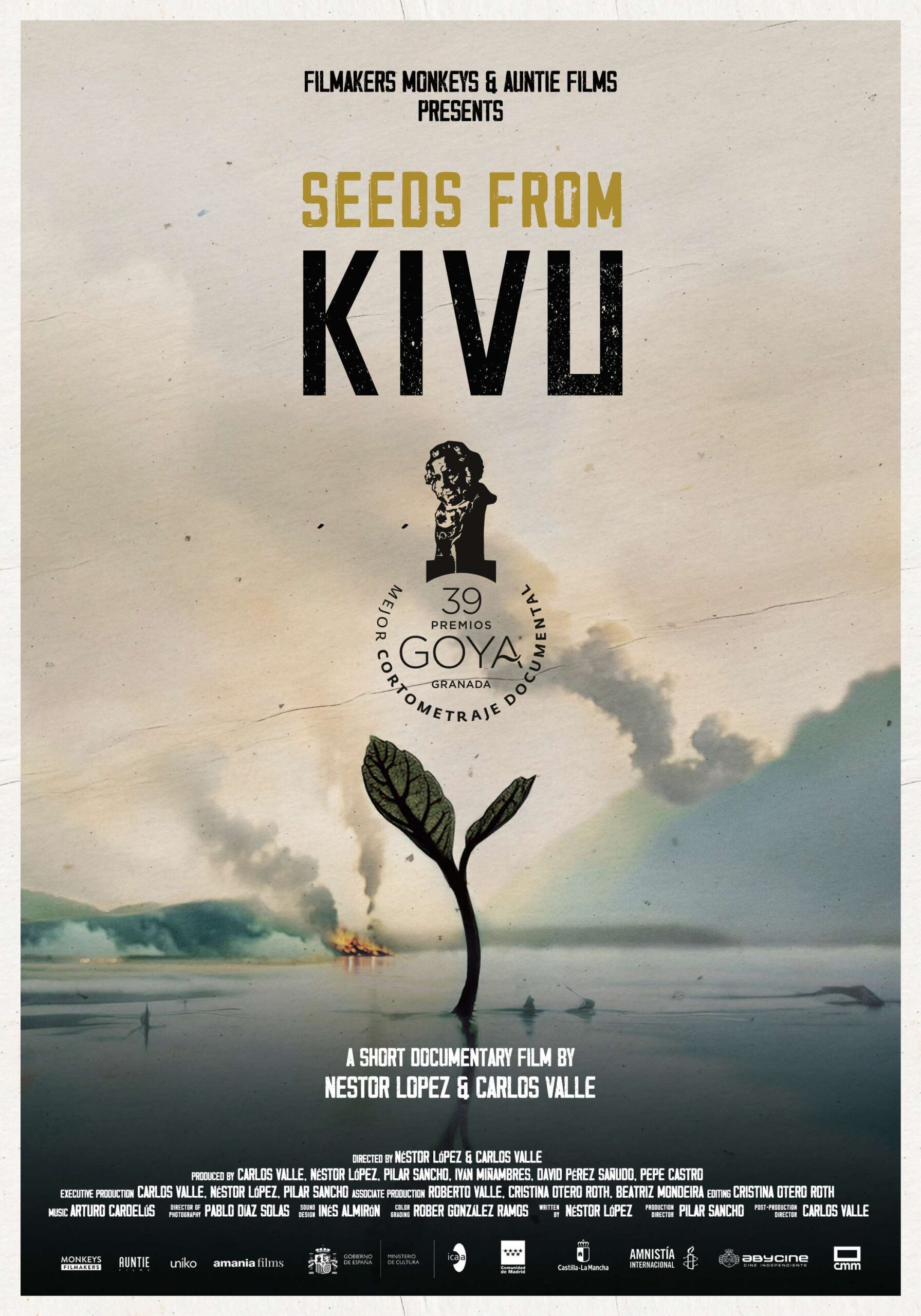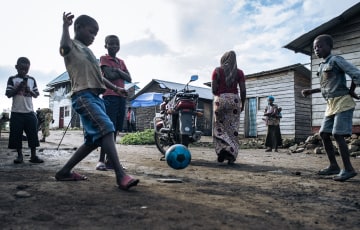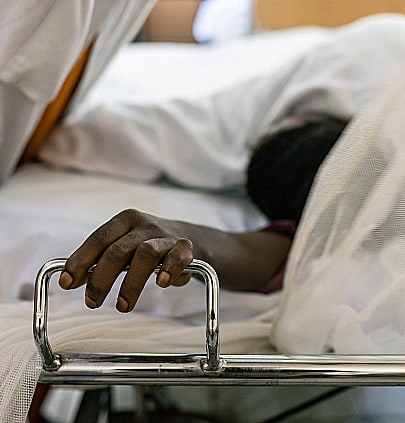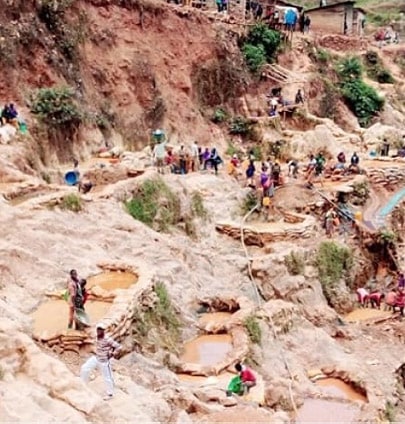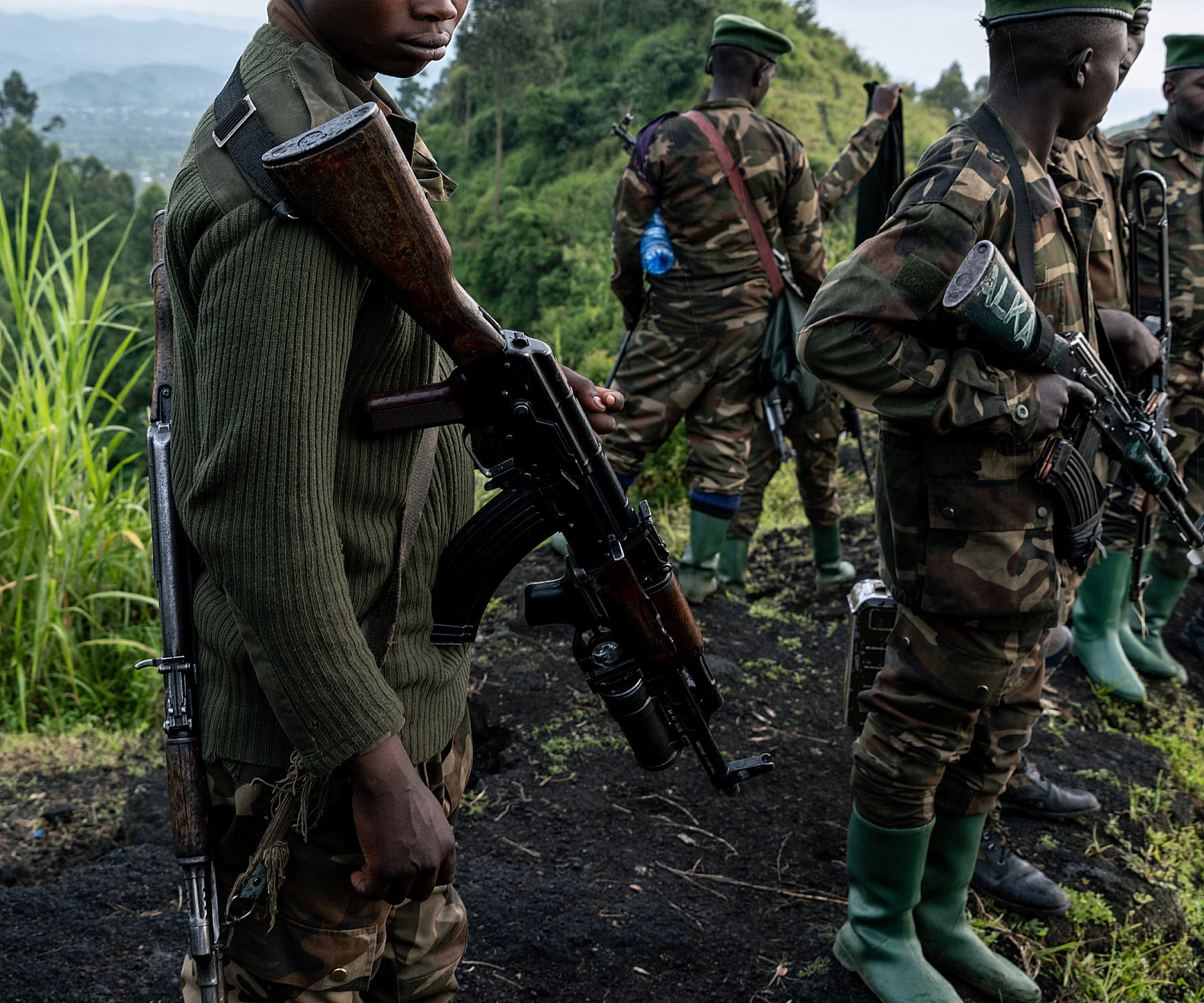
War in Congo
The conflict in Eastern DRC has resulted in
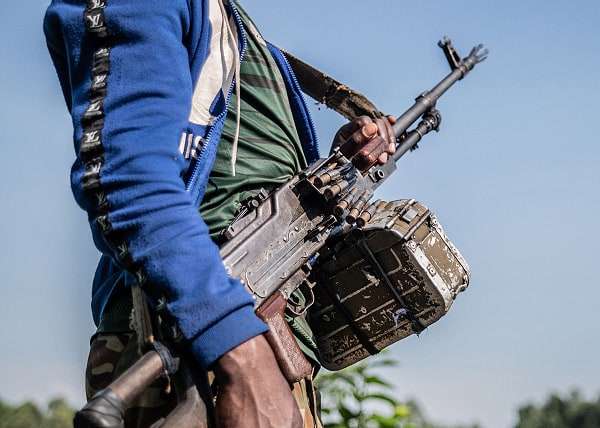
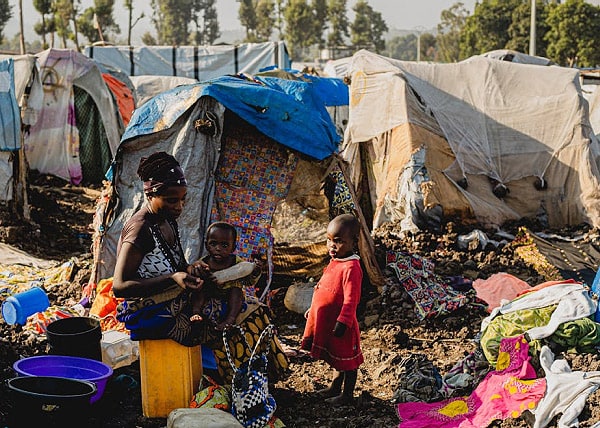
over 6 million
lives lost, (Not to mention the thousands of bodies in mass graves that have never been exhumed)
The displacement of millions,
The displace-
ment of millions,

and a humanitarian crisis of unprecedented scale.
The Democratic Republic of Congo (DRC) has endured one of the deadliest conflicts since World War II, with over 6 million lives lost and millions more displaced. Often driven by the struggle over its vast mineral wealth, the ongoing conflict has caused untold suffering, particularly for women and children. Sexual violence has been a weapon of war, with mass atrocities committed by rebel groups and foreign-backed militias.
Since the influx of refugees following the 1994 Rwandan genocide, the eastern regions of the DRC have been caught in cycles of violence. While the First and Second Congo Wars formally ended in 1997 and 2003, armed groups like the M23 continue to destabilize the region. Despite various peace agreements, the underlying causes (poverty, resource exploitation, and weak governance) have yet to be resolved, leaving eastern Congo in a state of chronic insecurity.
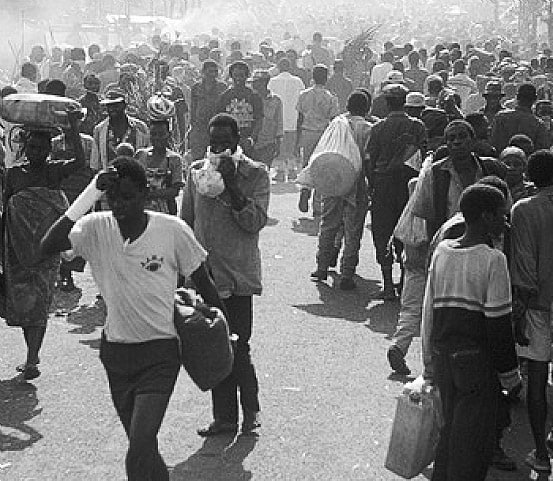
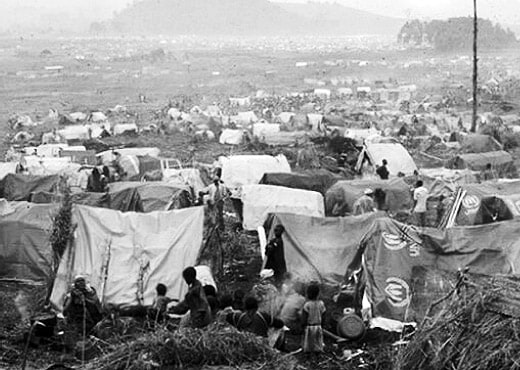
Event: After the Rwandan genocide, 2 million Rwandese refugees, including members of militias responsible for the genocide, flee into eastern Congo (then Zaire), destabilizing the region.
Impact on People: Ethnic tensions soar, sparking violent clashes between militias, local communities, and refugee groups. Local infrastructure collapses, with refugees and locals facing hunger and disease. [Source: Human Rights Watch]


The surge in mobile phone production (from 60 million to 250 million units) drives soaring demand for coltan, fueling violence in the DRC as armed groups seize mines to fund operations.
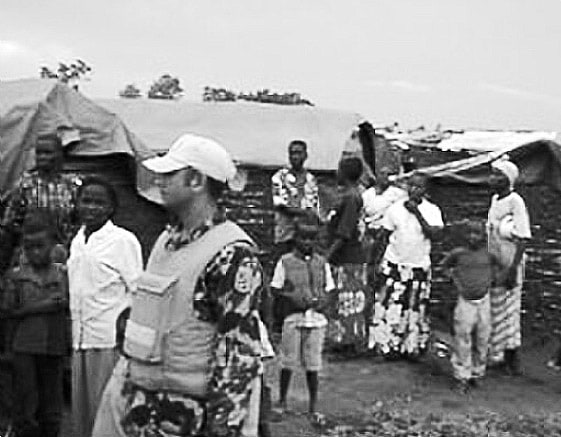
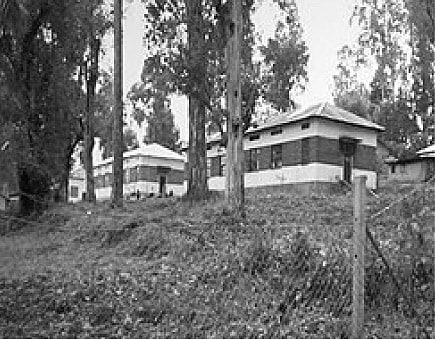
Event: Laurent-Désiré Kabila, backed by Rwanda and Uganda (forming the AFDL), leads a rebellion to overthrow Mobutu Sese Seko, ending his 32-year dictatorship.
Impact on People: The war displaces millions, with large-scale looting and destruction of civilian infrastructure. Tens of thousands die from disease and malnutrition. [Source: International Crisis Group]
Event: On October 6, 1996, Lemera Hospital, where Dr. Mukwege was the Medical Director, was attacked by an armed group. The insurgents pillage medical supplies and kill numerous patients, including Zairian soldiers, Hutu refugees, and civilians. Around 37 people are murdered in their beds. Dr. Mukwege was not at the hospital at the time of the attack.
Impact on People: This event highlights the extreme risks faced by medical professionals and underscores the devastating consequences of conflict on the healthcare system in eastern Congo. [Source: UN Mapping Report]


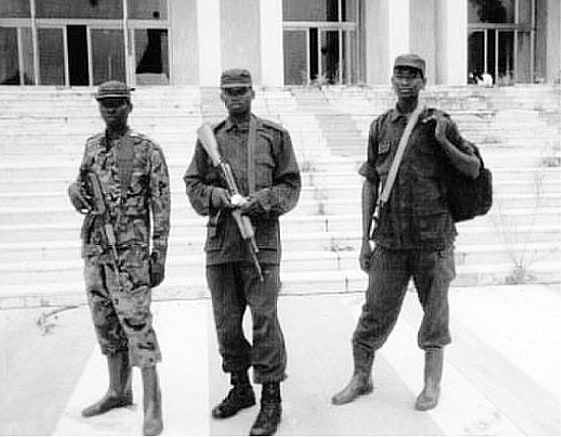
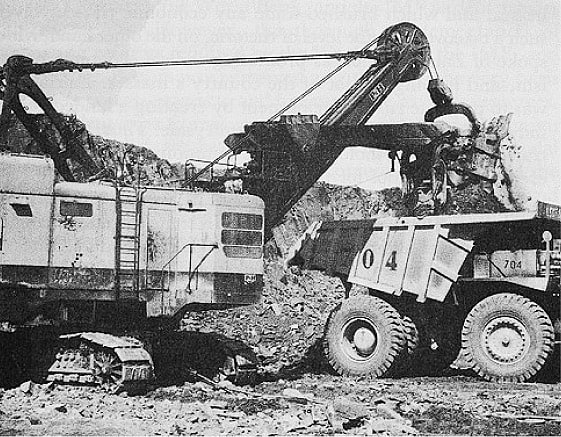
Event: In July 1999, the Lusaka Peace Agreement is signed, leading to the withdrawal of foreign troops and a framework for a power-sharing government. Major rebel groups, including the Rwandan-backed RCD (Rassemblement Congolais pour la Démocratie) and the Ugandan-backed MLC (Mouvement de Libération du Congo), are granted representation alongside the existing Congolese leadership and political opposition.
Impact on People: Despite the agreement, the country remains divided, and violence continues, preventing displaced populations from returning home. The fragile truce exacerbates instability as armed groups continue to control large parts of the east. [Source: United Nations and International Crisis Group]


Event: President Laurent-Désiré Kabila is assassinated by one of his bodyguards. His son, Joseph Kabila, assumes power amid the ongoing conflict.
Impact on People: The assassination further destabilizes the country and prolongs the devastating conflict in eastern Congo. [Source: BBC News]
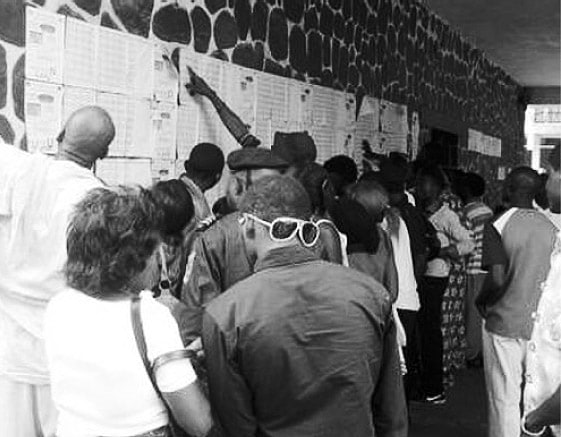
Event: In April 2002, the Sun City Agreement is signed in South Africa, establishing a transitional government that includes President Joseph Kabila, representatives from rebel factions, political opposition, and civil society.
Impact on People: Rebel groups continue to control large, mineral-rich parts of the country, particularly in the east, where sporadic violence persists. While the agreement lays the groundwork for national unification and a democratic transition, the granting of power to factions with a history of violence and exploitation has likely exacerbated instability. Displaced populations remain unable to return home, further highlighting the ongoing challenges. [Source: International Crisis Group and the United Nations]
By 2003, more than 3.4 million people were internally displaced in Congo due to ongoing violence and instability. [Source: UN Refugee Agency (UNHCR)]

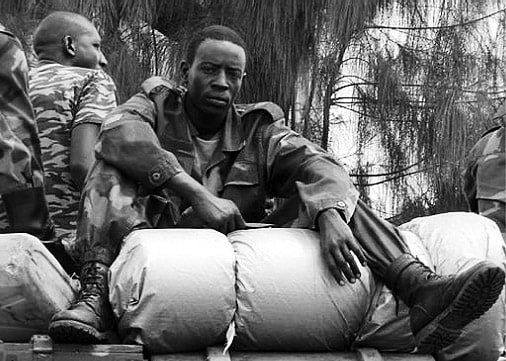
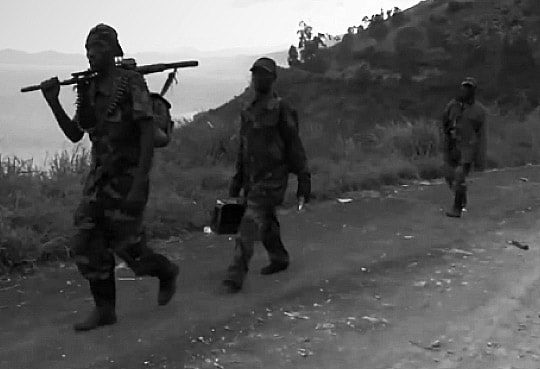
Event: Joseph Kabila wins the first democratic election in 40 years. The international community hails it as a step toward stability.
Impact on People: Despite the elections, violence and human rights abuses persist in eastern Congo. Armed groups still control mineral-rich areas, and child soldier recruitment remains rampant. [Source: The Guardian]
Despite the elections, armed groups controlled 80% of the country’s mineral-rich eastern regions, perpetuating exploitation and conflict. [Source: Amnesty International]


Event: After Laurent Nkunda’s CNDP faction is integrated into the Congolese army, dissatisfaction leads to the creation of M23, backed by Rwanda.
In January 2008, the International Rescue Committee reported that an estimated 5.4 million people had died over the preceding ten years as a result of the conflict, nearly half of them children under five. [Source: International Rescue Committee]
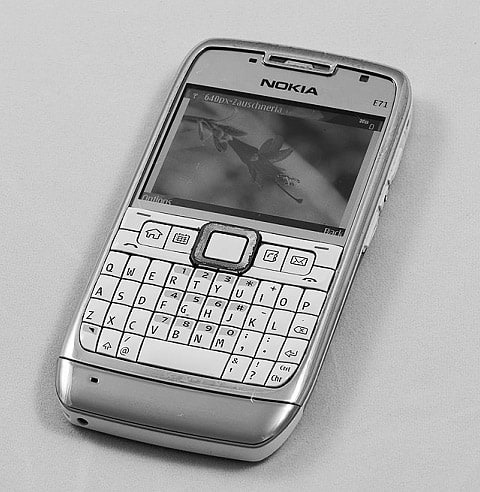

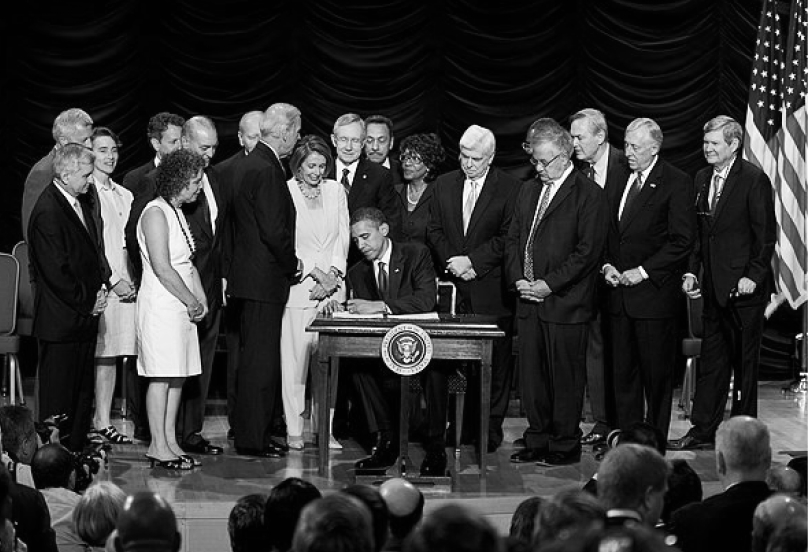
Event: The U.S. Congress passes the Dodd-Frank Act, which mandates the disclosure of conflict minerals sourced from the DRC and surrounding regions. This law aims to cut off funding to armed groups profiting from the mineral trade.
Impact on People: While the act seeks to curb violence linked to mineral extraction, it unintentionally drives underground smuggling networks and complicates supply chains for legitimate businesses. [Source: U.S. Government, Global Witness]
One woman is raped every minute in the Congo according to the New York Times. [Source: New York Times]
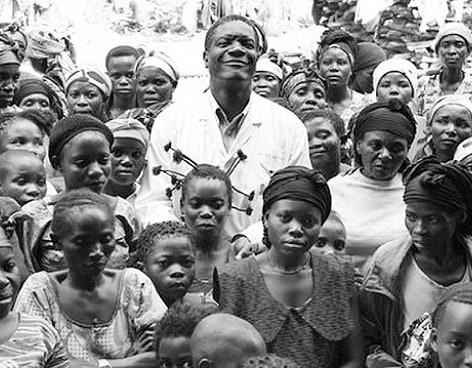
Event: The United Nations releases the 550-page Mapping Exercise Report detailing 617 of the most serious violations of human rights and international humanitarian law in the DRC between 1993 and 2003, covering the First and Second Congo Wars. The report outlines atrocities committed by both state and non-state actors, including mass killings, sexual violence, and forced recruitment, but accountability for specific individuals or groups was redacted before its release, due to concerns over political implications and the potential disruption of peace efforts.


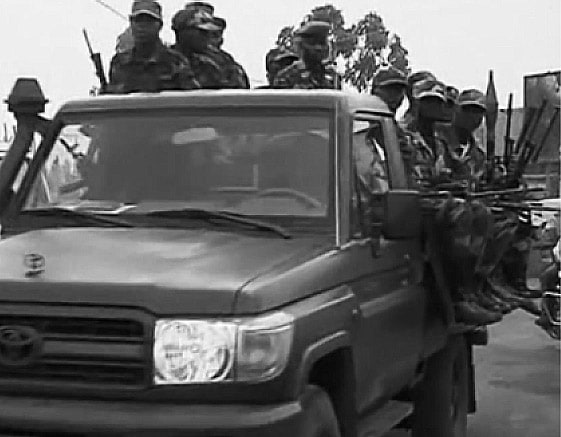
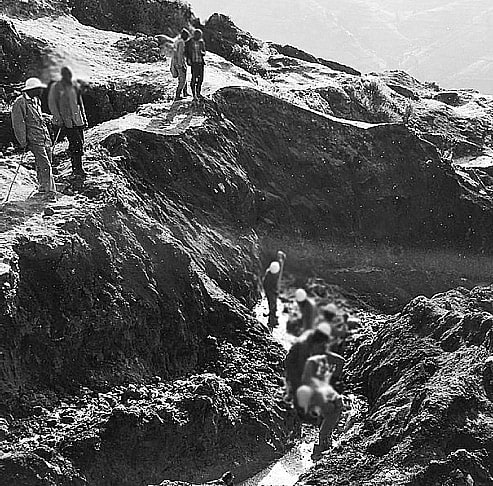
Event: The OECD introduces due diligence guidelines to prevent the trade of conflict minerals. The International Conference on the Great Lakes Region (ICGLR) launches the Regional Certification Mechanism (RCM).
20% of global supply of tantalum, tin, and tungsten originates from the DRC, much of it tied to conflict zones.


Event: Dr. Denis Mukwege survived an assassination attempt at his home when armed men opened fire. Although he escaped unharmed, his security guard was tragically killed while protecting him.
Impact on People: The attempt on Dr. Mukwege’s life highlights the extreme risks faced by individuals and organizations working to address sexual violence in conflict. Mukwege, who has treated thousands of survivors, continues to speak out for justice, despite ongoing threats. [Source: The Guardian]
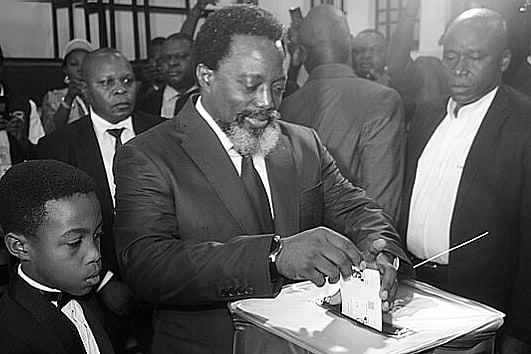
Event: In November 2012, the M23 rebel group seized the city of Goma, displacing approximately 140,000 people (totaling more than 500,000 since the conflict began in April 2012). M23 held the city for about two weeks, during which time they controlled key strategic locations and continued to disrupt humanitarian aid efforts. The United Nations and Congolese forces, with support from the UN’s Intervention Brigade, launched a coordinated military response to drive M23 out of the city. By late November 2012, M23 was forced to retreat and ultimately went into exile in Rwanda and Uganda.
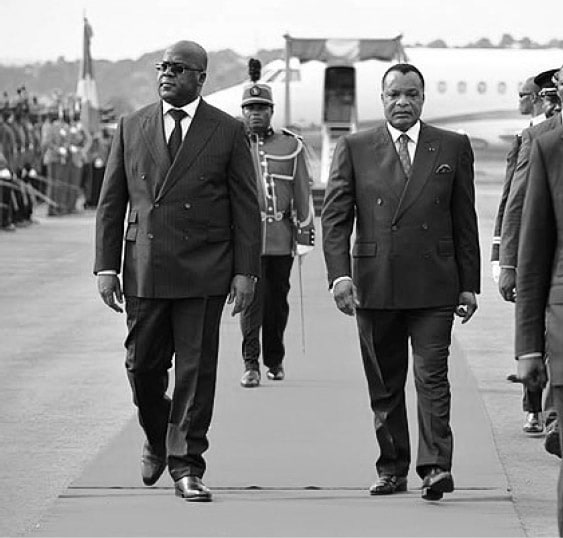
The Dodd-Frank Act mandates disclosure of conflict minerals, spurring certification efforts but enabling smuggling networks that adapt to evade regulations.


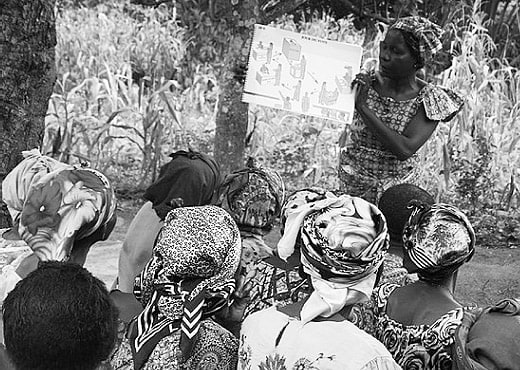
Event: Kabila refuses to step down after his term expires, sparking protests and a political crisis. In the interim, the Accord de la Saint Sylvestre, mediated by CENCO, granted Kabila two additional years in power, further delaying a resolution.
Impact on People: Protestors face violent repression, with hundreds killed. The political instability fuels further violence in the east, where local militias exploit the chaos. [Source: Human Rights Watch]

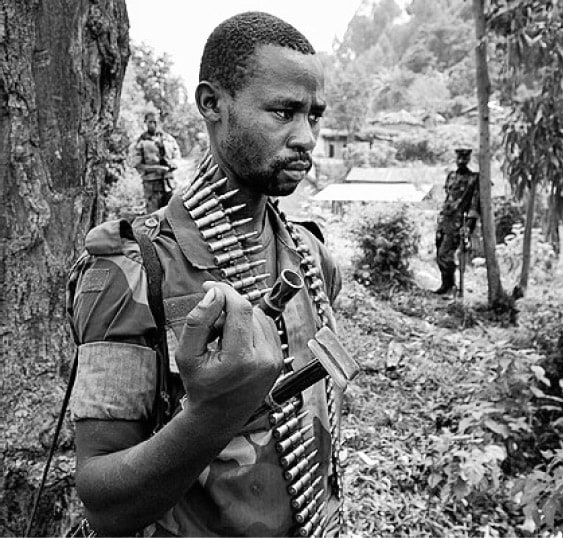
Event: Félix Tshisekedi becomes the first president in Congo’s history to take power through a peaceful transition, though the legitimacy of his victory is widely questioned, with evidence suggesting that Martin Fayulu was the true electoral winner.
Impact on People: While the election brings hope for peace, fighting continues in the east. Humanitarian crises persist, with millions still lacking access to healthcare, education, and food. [Source: AP News]
By the time of the election, over 13 million Congolese required humanitarian assistance, with millions suffering from severe food insecurity. [Source: Al Jazeera]

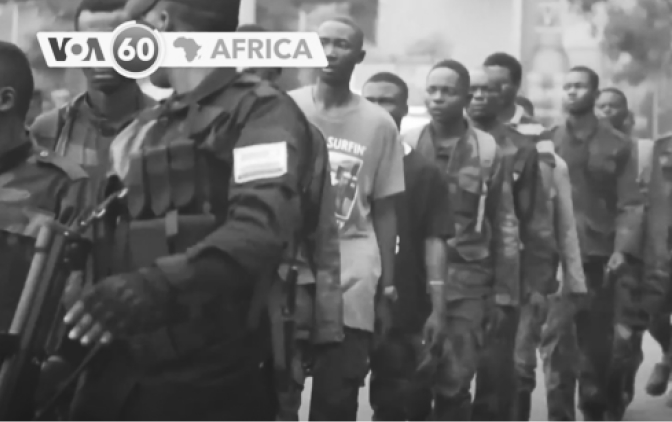
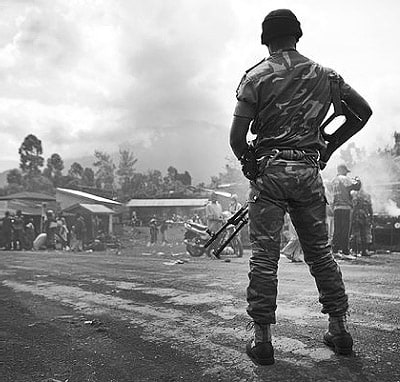
Event: M23 resurges, capturing key towns in North Kivu. Reports allege that the group receives military support, including weapons and training, from Rwanda, exacerbating regional tensions.
Over 150,000 people are displaced within months of the renewed conflict. [Source: UN CERF]


Event: M23 consolidates its hold on strategic territories in eastern DRC despite international condemnation. Reports confirm the group’s continued access to arms and cross-border support, undermining peace efforts. The UN Group of Experts reports that M23’s control over Goma and surrounding areas provides them access to significant mineral wealth, including coltan and cassiterite mines. The exploitation and smuggling of these “conflict minerals” fund the rebel group’s activities and exacerbate regional instability.
Impact on People: The prolonged conflict leads to mass displacement, worsening malnutrition rates, and strained healthcare services in affected areas. Refugee camps face outbreaks of cholera and other diseases due to overcrowding and poor sanitation. [Source: UN Group of Experts, WHO, USAID]
Event: M23 rebels, reportedly backed by up to 4,000 Rwandan troops, seize Goma and Bukavu, the largest cities in eastern DRC, marking a significant escalation in the conflict. Following the capture of Bukavu, M23 forces advanced south towards Uvira. [Source: Refugees International, Reuters]
Impact on People: The capture of Goma and Bukavu triggers a mass exodus, with thousands fleeing to neighboring countries. The humanitarian crisis intensifies, with overcrowded camps, food shortages, and increased gender-based violence. Refugee camps face worsening conditions, with disease outbreaks due to overcrowding and poor sanitation. [Source: UNICEF]
AN EVOLVING CRISIS
The ongoing conflict in the Democratic Republic of the Congo (DRC) remains one of the most devastating crises in the world. Armed groups continue to exploit the country’s rich mineral resources, driving widespread violence and instability. The resurgence of armed factions like M23 has displaced millions, exacerbating an already fragile humanitarian situation. With more than half of the population living in crisis, basic needs such as food, healthcare, and education remain out of reach for many Congolese. As violence spreads, the country’s social fabric continues to be torn apart, leaving generations vulnerable to the horrors of conflict and poverty.
Displacement: Over 7 million people are currently internally displaced in the DRC, one of the largest displacement crises globally.
Source: International Rescue Committee, UN Refugee Agency (UNHCR) – 2024
Hunger: More than 25 million people—approximately a quarter of the population—are experiencing acute food insecurity.
Gender-Based Violence: In 2023, the UN recorded 123,000 cases of gender-based violence across the DRC. In January 2024 alone, 10,400 cases of sexual violence were reported in North Kivu.
Source: UN Security Council and MSF – 2024
Children: Nearly 4.5 million children suffer from acute malnutrition, with many in conflict-affected regions.
Healthcare Crisis: Armed conflict and displacement have left more than half of the population without access to adequate healthcare, with resources often diverted or destroyed due to the violence.
Latest News:
The roots of the
conflict in the DRC are deeply intertwined with its colonial history.
Under Belgian rule, the Congo was ruthlessly exploited for its rich natural resources, with little regard for the well-being of its people. This relentless extraction was driven by the global dogma of growth, prioritizing economic expansion over human and environmental costs. Shortly after independence in 1960, the resource-rich province of Katanga declared secession with Belgian backing, severely undermining Lumumba’s government. His efforts to assert Congo’s sovereignty, including seeking Soviet support to end the secession, alarmed Western powers. This led to his political isolation and, ultimately, his assassination in 1961, orchestrated with the complicity of Belgium and the United States.
The instability created by Lumumba’s removal and Katanga’s secession marked the beginning of prolonged political turmoil in the DRC. Newly independent institutions struggled to govern such a vast and diverse country, while foreign interference and manipulation of local factions exacerbated the chaos. This laid the groundwork for the rise of Joseph Mobutu, who seized power in 1965 with Western backing. Mobutu’s regime, characterized by rampant corruption and the siphoning of the country’s wealth, entrenched instability and exploitation, leaving the DRC in a weakened state by the time of his overthrow in 1997.
The fall of Mobutu opened the door to new forms of external interference. Far from being mere allies, Yoweri Museveni and Paul Kagame co-created the Alliance of Democratic Forces for the Liberation of Congo (AFDL) alongside Laurent-Désiré Kabila, using it as a vehicle to assert their influence over the country. This collaboration granted Uganda and Rwanda powerful footholds in the Congolese government and military, with Rwanda’s James Kabarebe even serving as head of the Congolese army from 1997 to 1998. Their involvement went beyond removing Mobutu, as they sought to control Congo’s immense natural wealth, which they considered integral to their broader regional ambitions. Framing their intervention as a stabilizing force, Kagame and Museveni gained Western backing, further entrenching their influence.
The AFDL invasion of 1996 not only shifted power dynamics but also exposed how deeply external ambitions were tied to Congo’s natural resources. This era marked the reconfiguration of colonial patterns of exploitation into a modern struggle for control over land and wealth, entrenching the instability and resource-driven rivalries that continue to define the origins of the conflict in the DRC today.
The Human Cost
The conflict has not only led to a staggering death toll but has also decimated infrastructure and social systems. Public services such as healthcare, education, and access to clean water are almost nonexistent in many parts of the country, particularly in the conflict-ridden east. Sexual violence, often used as a weapon of war, has left countless women and girls traumatized and in need of specialized medical care, like that provided at Panzi Hospital.
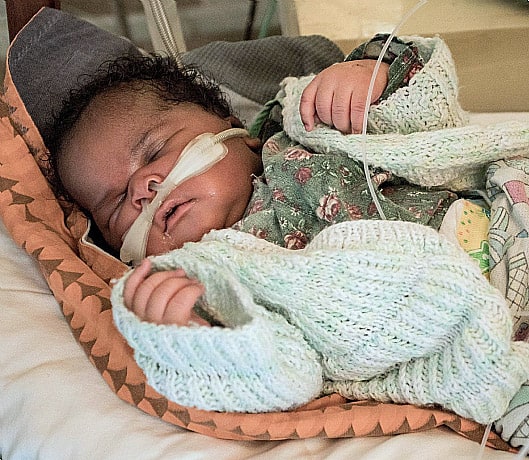
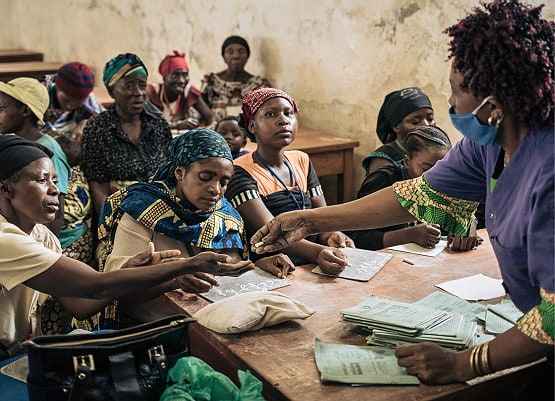
In response to this humanitarian crisis, Panzi Foundation was created to offer holistic care to survivors of sexual violence, war trauma, and severe gynecological conditions, including fistula repair.
Our work extends beyond medical treatment; we focus on psychological, legal, and socioeconomic support to help survivors rebuild their lives. We are also committed to advocating for systemic change, addressing the root causes of conflict, and working towards a peaceful and just future for the Democratic Republic of Congo.
Our mission is rooted in the belief that healing and justice must go hand-in-hand. The Panzi Foundation remains a beacon of hope in a country ravaged by decades of war, working tirelessly to empower survivors, strengthen communities, and promote lasting peace in the region.
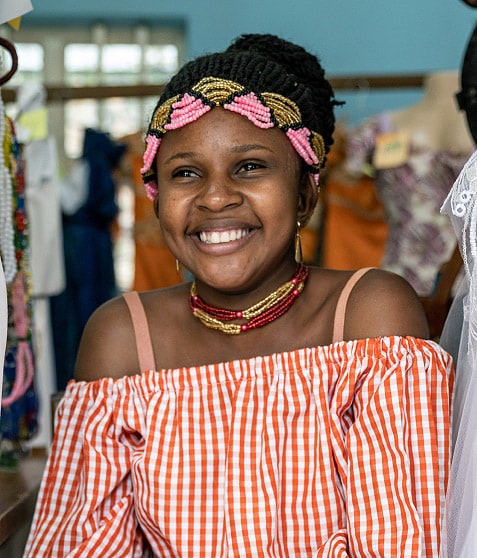
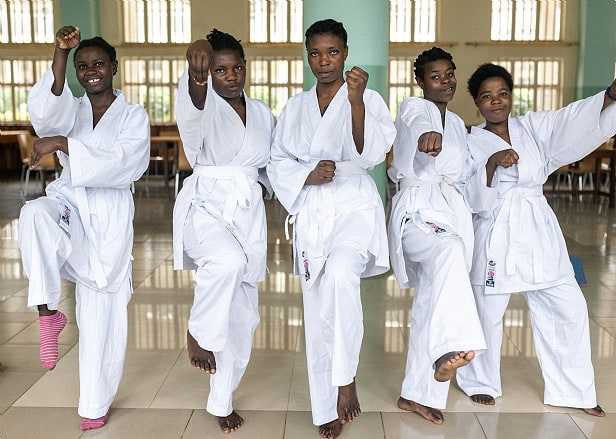
Learn more about our solutions:
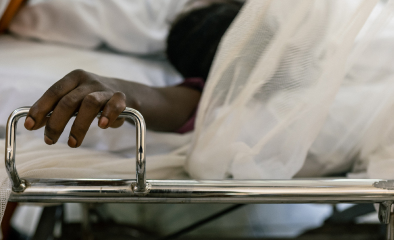
Our solutions
From peace building to transitional justice to survivor care to responsible sourcing
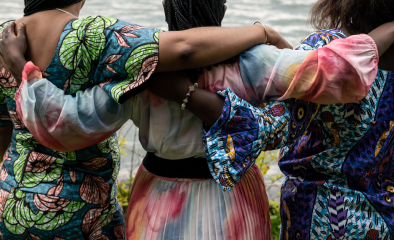
Our holistic model
Medical, psychosocial, legal, and socio-economic holistic support for every survivor
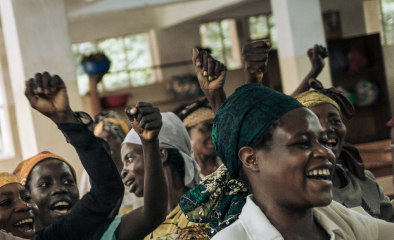
Badilika: Advocacy & Justice
Driving systemic change and transformation in societal attitudes and behaviors
Join Us in healing survivors and communities, WHEREVER and HOWEVER THEY NEED
